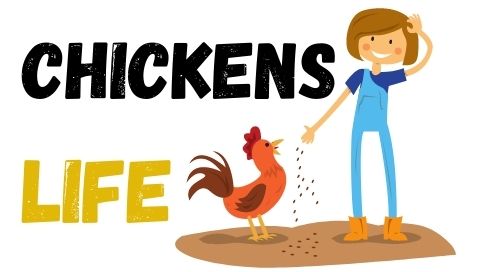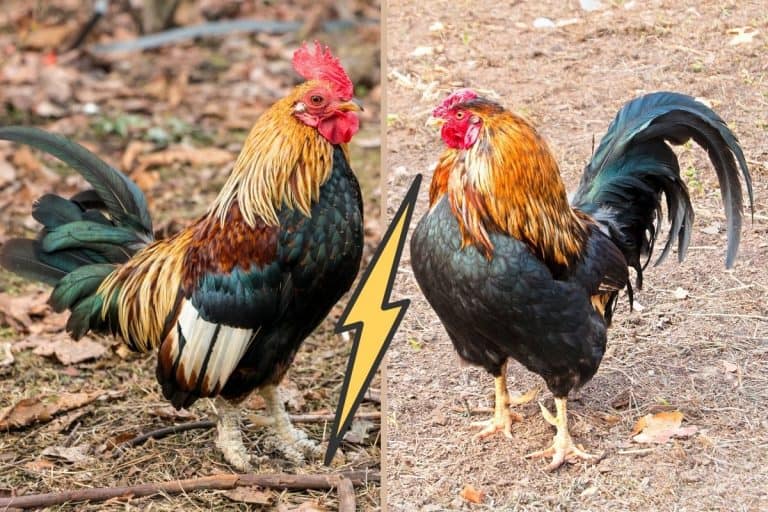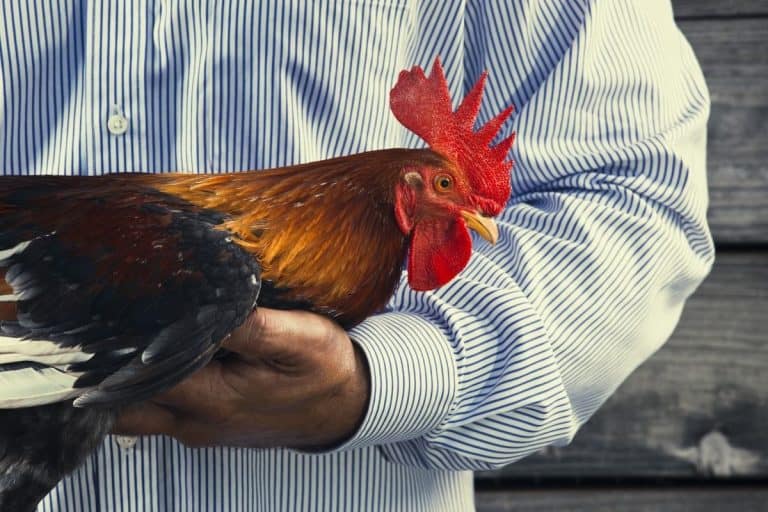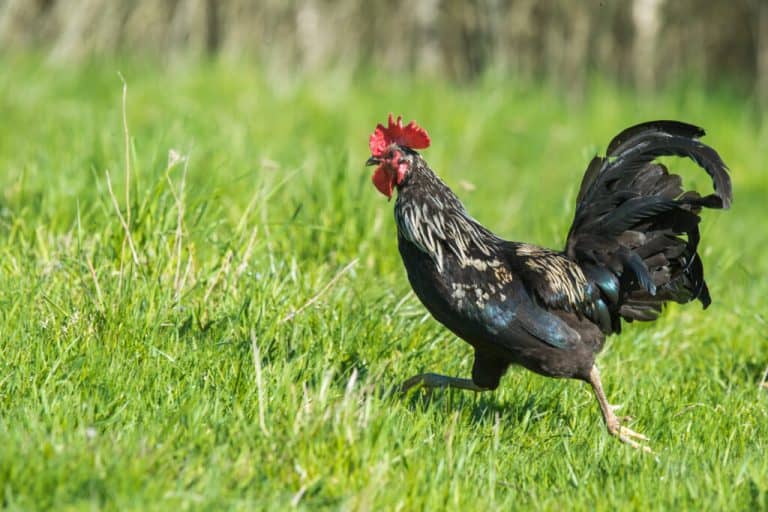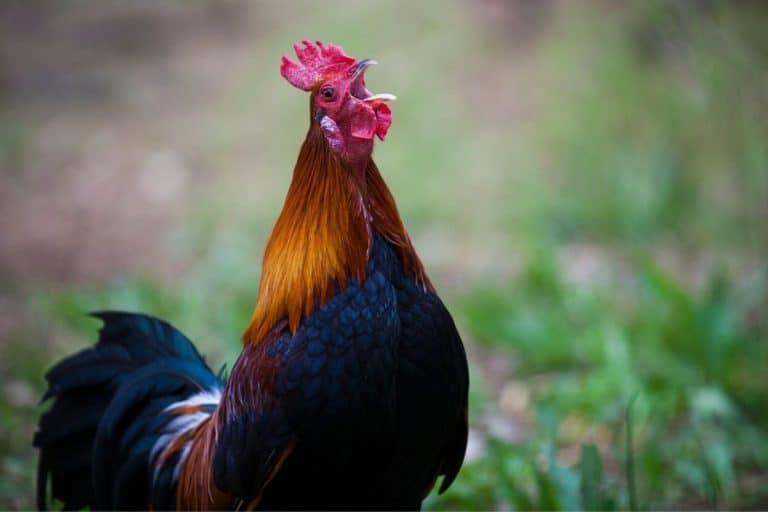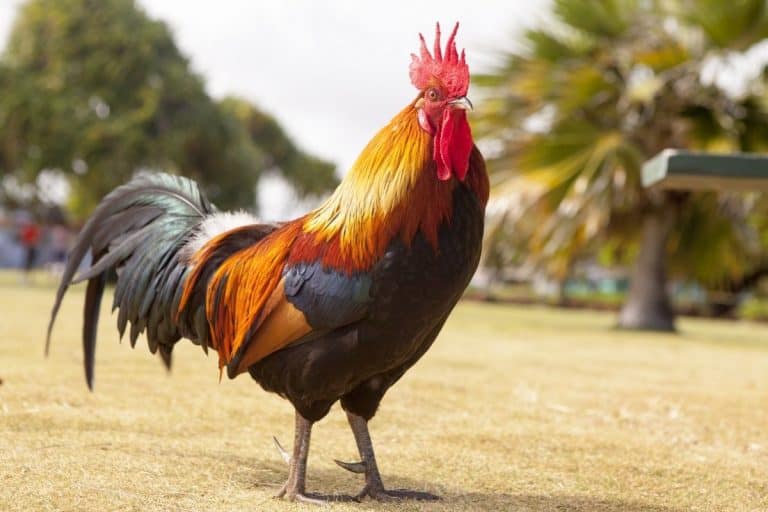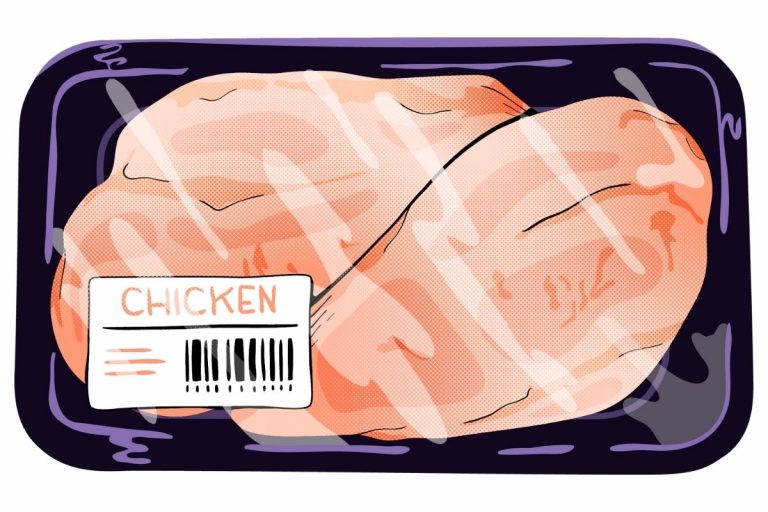At What Age Is A Rooster Full-Grown? (Fertility, Crowing, etc.)
Those who are keeping chickens or are starting a poultry farm for the first time would need to know more about the rooster just as much as the hens, even though your hens are the lifeblood of the operation. That’s because your roosters are the ones responsible for fertilizing the eggs and allowing you to have more chicks in the long run. All that said, it is important to know when a rooster is old enough to be considered sexually mature. So, at what age is a rooster full-grown?
Roosters become are already full-grown at about 4 to 5 months old. That means that, at that age, roosters are already sexually mature enough to fertilize eggs and begin crowing, which is a sign of maturity as well. From then on, they can stay sexually fertile for several more years.
Knowing when a rooster is full-grown is important for those who are still starting out in their poultry business because of how you need to make sure that your roosters are taken care of and are given enough care and attention, especially when they begin to show aggression towards other roosters as they mature. That said, let’s get to know more about roosters and when they begin to show sexual maturity.
Hey chicken buddies: Quick heads-up before going further! I've put together a list of stuff I use and love for my flock. If you're curious about what keeps my hens happy, click here to find out.
At what age does a rooster start crowing?
If you are still a beginner in the field of poultry, it is important for you to give as much attention to your male chicks or your future roosters as you do to your hens. That’s because, without your roosters, your hopes of having a self-sustaining poultry business that will last for a very long time will go down the drain.
Roosters are the ones responsible for fertilizing your hens so that the bloodline will continue on in the future in the form of chicks that hatch from fertilized eggs.
That said, when you talk about young roosters who are just beginning the early stages of their growth, the one thing you need to consider the most here is the age at which the rooster starts crowing. And you will get to understand why a rooster’s crow is essential when it comes to its overall maturity and growth.
What is crowing and why do roosters do it?
For those who don’t know what crowing is, this is the usual cockle doodle doo sound that is usually associated with chickens. This is the sound that you hear early in the morning when you are living somewhere close to a place with roosters living in them. Unless you’ve been living in the city your entire life, and you weren’t exposed to this sound from movies and television series, you probably already know what we are talking about.
Most people who have heard a rooster’s crowing associate that sound as the rooster’s way of signaling the sunrise and essentially waking up people who live in the farms as this functions as their “alarm”. However, while there is some truth to that, a rooster’s crowing is more than just a natural alarm clock because that is not the way roosters look at it.
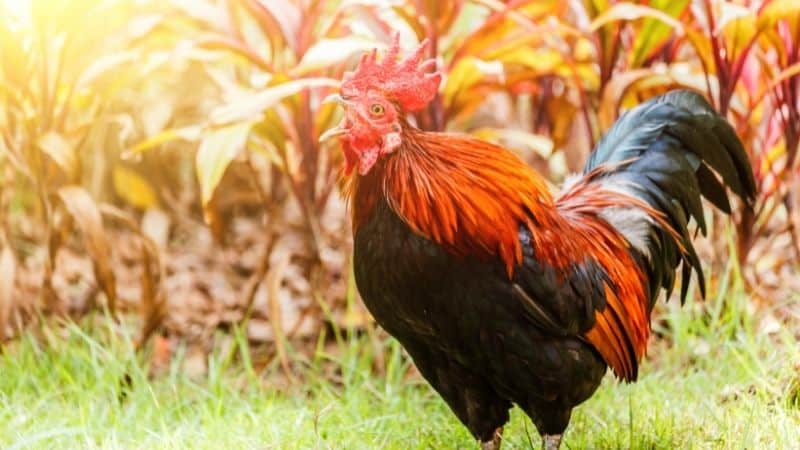
The truth is that a crowing rooster is essentially using that sound as an early warning to all the other roosters in the surrounding area. Basically, it is telling all other roosters that “this is my territory and I will fight you if you trespass it”. In other words, it’s the rooster’s way of marking its territory and warning all other roosters that they are in for a fight if they even think of entering that territory.
So, what we may think as a natural alarm clock is actually a rooster’s way of telling other roosters that it is ready for a fight. This is why, when one rooster begins crowing early in the morning, other roosters will also do the same as if they are essentially telling each other that they are not backing down from a fight. And they do this early in the morning so that they will be able to warn other roosters as early as possible that they are not afraid to fight if ever their territory gets trespassed.
From there, we can now understand that a rooster’s crowing is a sign of maturity on its part because the territorial instincts of a rooster begin to kick in when it is already sexually mature enough to try to fend off other roosters from its territory. It’s their way of laying claim to a territory that is full of hens that they can sexually reproduce with as they want other roosters to stay away from that territory.
More details in this article: Roosters Crowing: Everything you Should Know
How old will the rooster be when it starts crowing?
Because of that, it becomes easy for us to actually understand when a rooster is already sexually mature enough to reproduce because crowing is one of the tell-tale signs that it has already developed well enough to want to reproduce and mark its territory at the expense of all of the other roosters in that area. In other words, you should try to look at a rooster’s crowing as a sign that it is already full-grown and ready to reproduce. But at what age do roosters start crowing?
Usually, a rooster will begin crowing by the time they reach about 4 or 5 months old. So, by the time that a roster reaches that age, expect it to begin crowing early in the morning all while all of your other roosters crow as well.
Consequently, this is also the time when your rooster will begin to reach sexual maturity, which is a sign that it is fully grown. Still, there are some cases where crowing is merely a learned habit and not something that the rooster actually wanted to do due to how it became mature enough to want to mark its territory.

There are some cases where young male chickens can begin crowing at 2 or 3 months old, especially if there are adult roosters nearby. This can be a learned habit for the young and growing rooster, as it probably learned crowing from the other roosters in the poultry farm.
Meanwhile, there are also cases where hens can actually crow at a very early age. And when roosters and hens are still very young, it can be difficult to distinguish them from each other unless the differences in their feathers have started to develop.
However, you should know that hens can start crowing for a different reason, such as when it is trying to signal its chicks that there is a predator nearby and that they should begin hiding. That said, they are very different from roosters when it comes to their reason for crowing.
Also, there are some cases where roosters will not start crowing until they reach about 8 or 9 months. It really depends on how the individual roosters develop at their pace, as some may end up developing faster or slower than the others based on many factors such as the food that they eat or even on their genetics. But the point here is that, on average, most roosters will most likely start crowing by the time they are about 4 or 5 months old.
Wait, I have some recommendations for you!
Before you go any further, I want you to take a look at some of the recommendations I've handpicked for you. I think these are essential items you should have for your chickens flock. You can check them out and buy them directly from Amazon.
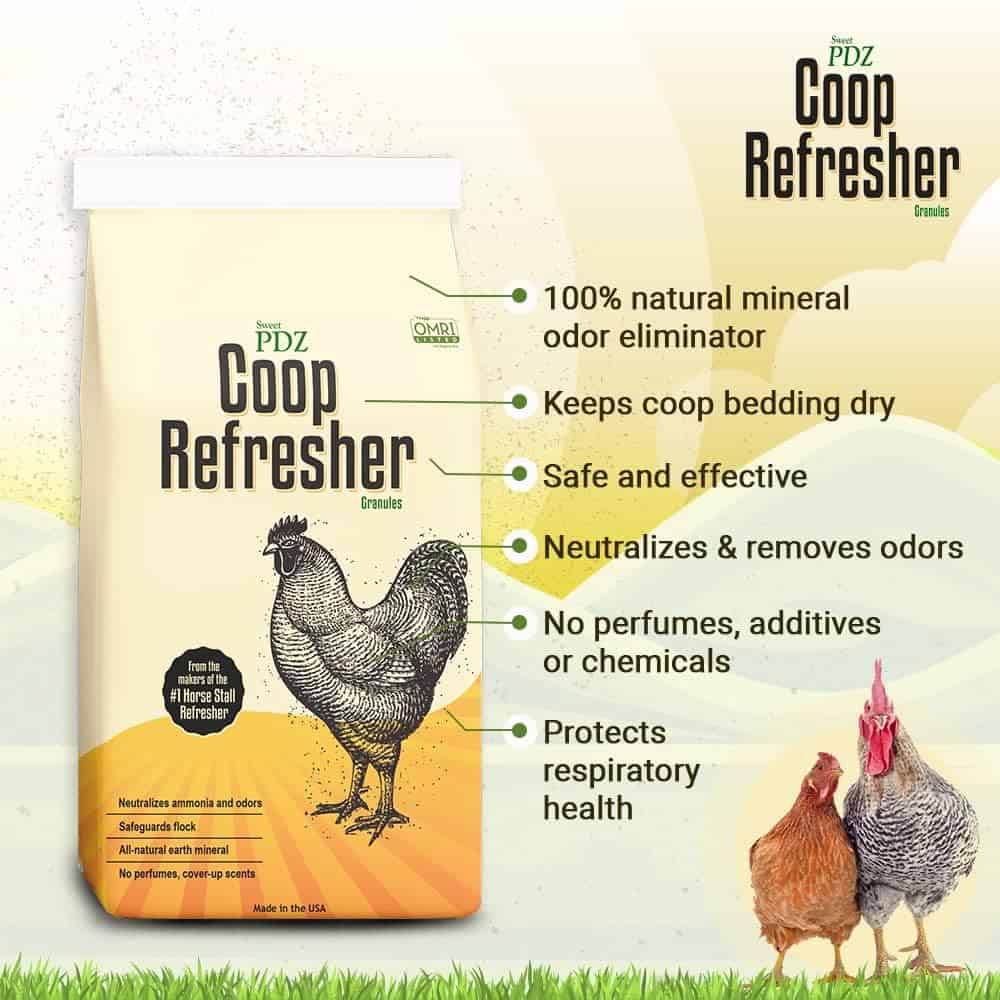 |  | 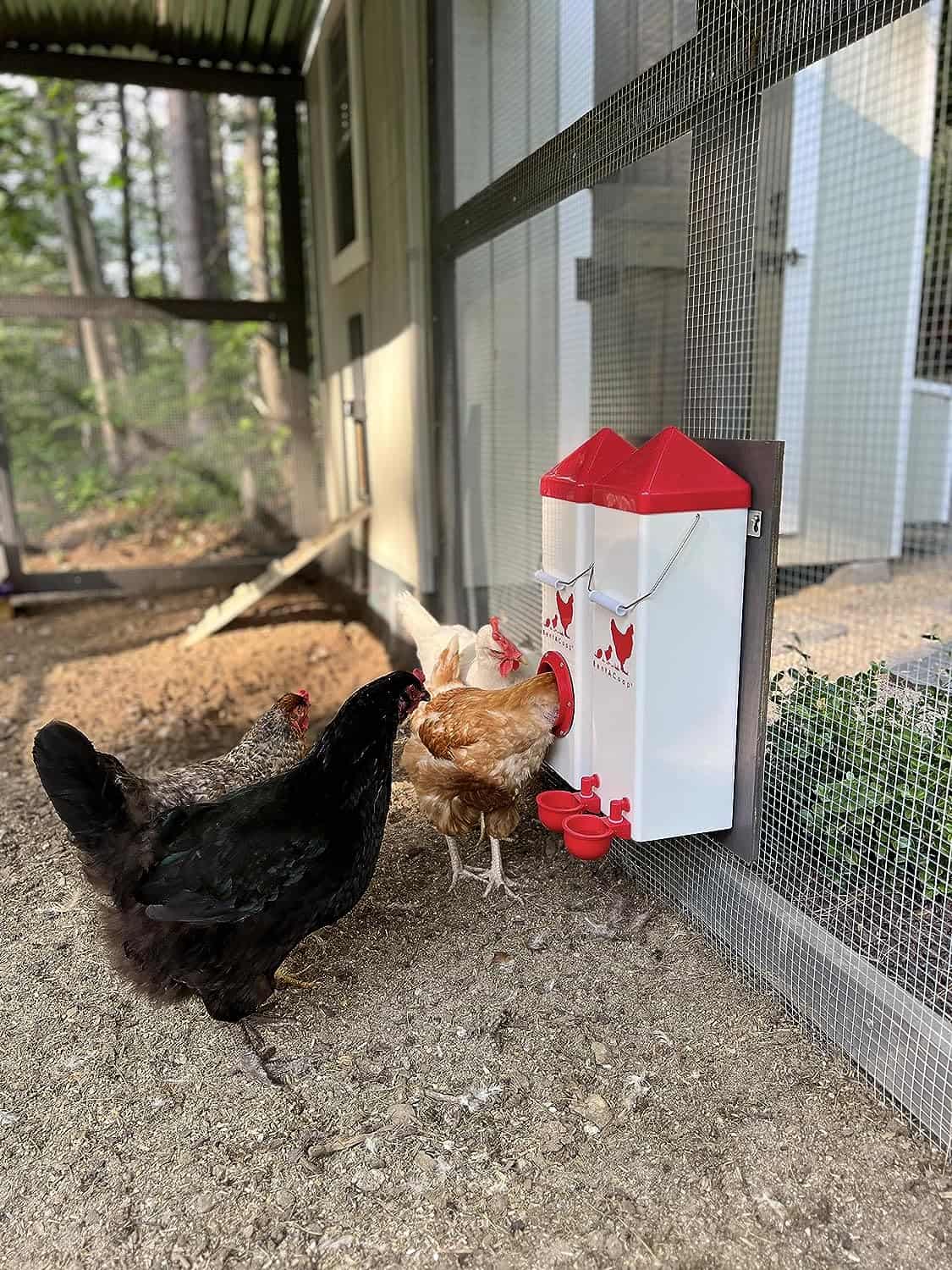 | 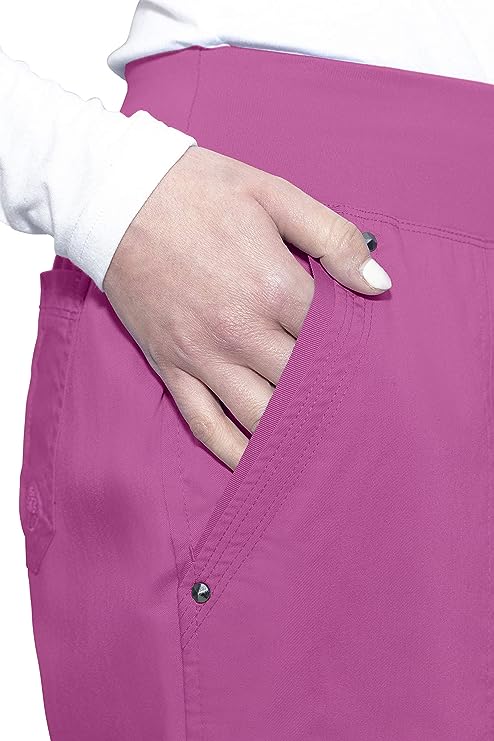 |
| Essential accessory for your coop | No more tripping over hoses! | Predator protection made easy | Comfort + style is possible |
At what age do roosters become aggressive?
In most cases, roosters will start to develop this aggressive nature by the time they reach about 4 to 6 months old, which is consequently the time they begin to become sexually mature and fully grown.
At this stage, this is when they are at their most aggressive because they are still trying to establish themselves in the pecking order, and they are also still adjusting to the hormonal rush that is responsible for the many changes that are happening to the roosters.
So crowing is not the only thing you’ll notice from a rooster that is becoming sexually mature and is inching closer and closer to becoming a full-grown adult, their aggression towards other animals, most notably other roosters, is also to be taken in consideration.
A rooster can be nothing short of dangerous if it is starting to develop its aggressive side because of how sharp its talons are and how it is naturally equipped with the instincts of knowing how and when to use its sharp talons. And when roosters want to be aggressive, they can be very aggressive to the point that they will stop at nothing to keep an animal out of its territory. This is why rooster fights are quite common in other countries, as people use the aggressive nature of roosters to let them fight one another.

So, the reason why a rooster is aggressive is due to its natural territorial instincts. The rooster not only wants to keep other roosters out of its territory, which is also its breeding ground, but it also wants to make sure that the hens in its territory are protected from anything it perceives as dangerous such as predators or, to some extent, humans (be careful with kids). And its territorial nature is mostly fueled by the hormones that are rushing throughout its body at a time when it is still adjusting to the hormonal changes happening to it.
So, think of it as a teenage boy who is going through puberty, as there are different bodily changes happening to him. And because a teenage boy is yet to learn how to handle his hormones and the many physical changes associated with puberty, that is when he is crankiest and most aggressive.
In the case of a rooster going through hormonal changes, these changes are also responsible for its aggression, as the rooster is still trying to adjust to the changes while learning where it belongs in the pecking order.
Do roosters calm down with age?
So, a rooster’s aggressive nature can be good because of how it allows you to have a second layer of security for your poultry, considering that roosters can actually keep them safe from possible predators. However, at the same time, an aggressive rooster can also be quite problematic because of how it won’t be able to know friend from foe and will try to attack your other animals, which include your dogs. There will also be cases where a rooster may try to attack you as well.
In that regard, will roosters actually eventually calm down as they age?
When we are talking about calming down as in being less aggressive than they were, yes, roosters will sort of calm down as they grow older. This is because they have already started getting used to the hormones in their body and have begun to settle down in terms of how they handle their raging hormones.
However, in terms of how protective and territorial the rooster is, it will most likely stay the same but will be more judicious in terms of who it wants to attack. As such, an older rooster will most likely only show its aggression towards other roosters and to potential predators that may pose a threat to their flock. Meanwhile, it won’t likely see you or your pets as potential dangers to the flock’s survival.
That said, you don’t have to wait for a rooster to begin to settle down in terms of its hormones before you can safely approach it. You can still actually approach your rooster without worrying about getting attacked. The trick here is to approach it in a manner that is calm and steady so that you won’t end up startling or scaring the rooster.
After all, roosters are used to associating quick and sudden movements to the same movements that their natural predators do. As such, the key here is to make sure that you are as calm as possible when you are approaching your rooster.
If the rooster feels like it is on high alert as you are approaching it, give it about 10 minutes to calm down without approaching it. But make sure that you are still within the vicinity so that it will begin to understand that, with the passage of a few minutes, you are not a threat to it and to its flock. Allow it to settle without approaching it. And when you are ready to approach and handle the rooster, make sure that you do so in a calm manner.
How long can a rooster live?
After it reaches sexual maturity and adulthood at the age of about 4 to 5 months old, a rooster can be already sexually mature enough to reproduce with other hens. From then on, it will be able to continue to reproduce for a handful of years, but the quality of its reproductive capacity will begin to dwindle down as it ages.
But how long do roosters get to live?
In most cases, roosters have a usual lifespan of about 5 to 8 years. Throughout its entire lifespan, the rooster will be able to reproduce indefinitely, but its sperm count will decrease as it gets older. That means that it is best to have a younger rooster that is still in the middle of its prime if you want to have a healthy flock of chickens.
Essential Tools for Chicken Owners
Check my curated list of essential products!
I’ve gathered all the best products that have helped me with raising my chickens, so you don’t waste time on bad ones.
Find my complete list of recommendations here.
For more tips, guides, and recommendations, you should definitely subscribe to my newsletter.
Use the form below, it’s free.

